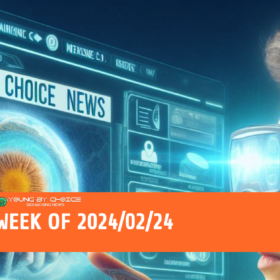Artificial intelligence (AI) has rapidly emerged as a powerful tool in the field of medicine, offering both opportunities and challenges for healthcare professionals. AI technologies have the potential to revolutionize the way healthcare is delivered and transform patient outcomes, but they also present ethical, legal, and practical challenges that need to be carefully navigated.
One of the key opportunities presented by AI in medicine is the ability to analyze vast amounts of data to identify patterns and trends that can help healthcare providers make more accurate diagnoses and treatment decisions. AI algorithms can sift through electronic health records, imaging data, genetic information, and other sources of patient data to provide personalized treatment recommendations based on individual patient characteristics.
AI can also help to streamline administrative processes in healthcare, such as scheduling appointments, managing medical records, and billing patients. By automating these routine tasks, healthcare providers can free up more time to focus on patient care and improve efficiency in the healthcare system.
Another major opportunity for AI in medicine is the development of predictive models that can help identify patients at risk of developing certain conditions or complications. For example, AI algorithms can analyze a patient’s medical history and genetic information to predict the likelihood of developing heart disease or diabetes, allowing healthcare providers to intervene early and prevent the onset of these conditions.
However, along with these opportunities, AI in medicine also presents several challenges that need to be addressed. One of the biggest challenges is ensuring the accuracy and reliability of AI algorithms. AI models are only as good as the data they are trained on, and biases in the data can lead to inaccurate or discriminatory results. Healthcare providers need to be vigilant in monitoring the performance of AI systems and ensuring that they are delivering safe and effective care to patients.
Another challenge is the ethical implications of using AI in medicine, particularly when it comes to issues such as patient privacy, consent, and liability. Health data is highly sensitive and must be protected from unauthorized access or misuse. Healthcare providers need to establish clear guidelines for the collection, storage, and sharing of patient data to ensure that patient privacy is respected and that AI systems are used responsibly.
In addition, there are practical challenges to the implementation of AI in medicine, such as the cost of acquiring and maintaining AI technologies, the need for specialized training for healthcare professionals to use these technologies effectively, and the potential disruption to traditional roles and workflows in healthcare settings.
Despite these challenges, the opportunities presented by AI in medicine are significant, and the potential benefits for patients and healthcare providers are enormous. By carefully navigating the challenges and opportunities of AI in medicine, healthcare professionals can harness the power of AI to improve patient outcomes, enhance the quality of care, and drive innovation in the field of medicine.













